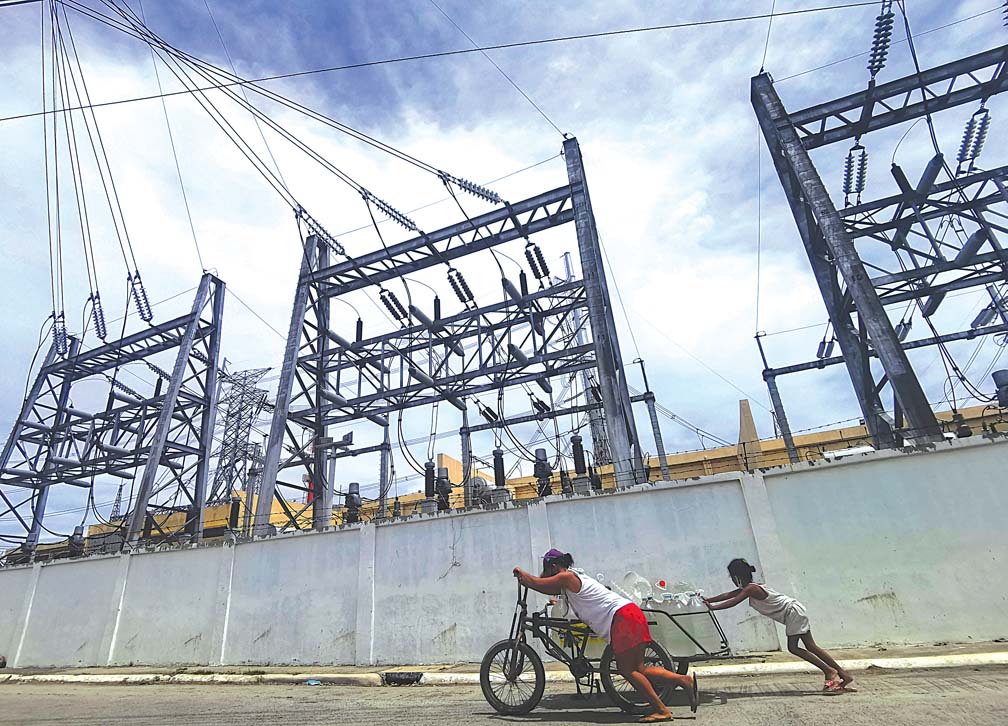
SEN. Raffy Tulfo visited President Ferdinand R. Marcos Jr. at Malacañang Palace on Monday, expressing concern over the country’s energy security amid poor performance of and threats to such security arising from the ownership of the National Grid Corporation of the Philippines (NGCP).
As presiding chairman of the Senate Committee on Energy, Tulfo sought an audience with the Chief Executive in a bid “to get the cooperation of different government agencies and swiftly address issues” with NGCP.
At the center of his discussion with the President was the NGCP, the country’s energy grid systems operator: 40 percent of it is owned by the State Grid Corporation of China (SGCC), while 60 percent is Filipino-owned.
At the same time, Tulfo pointed out that Chinese ownership of NGCP “poses serious national security threat” amid the current conflict between China and the Philippines over the West Philippine Sea (WPS).
The senator pressed for the return of the systems operation of the country’s transmission grid to the National Transmission Corporation (TransCo), a Philippine government entity.
However, the idea of the Philipine government retaking the operations of the transmission grid drew alarm bells from another senator.
Sen. Chiz Escudero cautioned against the “renationalization” or reacquiring of properties formerly owned by the Philippine government, saying it might discourage foreign investors from doing business in the country.
Tulfo cited an “intel report” that China has the capability to “remotely access the country’s national grid and sabotage it.”
The senator also noted, “All the instructions posted in NGCP plants about operations of sensitive equipment, including manuals, are written in Chinese characters, adding that there is no Filipino technician knows how to operate this.”
The lawmaker relayed to the President alleged violations by NGCP of its franchise contract, such as its failure to make good on the timely development of connectivity in the main power grid in various provinces.
“These concerns and lapses are enough reason for the government to cancel the franchise of NGCP,” the senator stressed.
He added that while Chinese shareholders only own 40 percent of NGCP, under the shareholders’ agreement they have the power to veto or junk the board resolution of majority shareholders. “In short, Chinese shareholders can do everything they want to do in running the NGCP. This is the reason our energy situation is problematic,” he said, speaking mostly in Filipino.
The senator has filed Senate Resolution (SR) No. 609 seeking to investigate the corporation.
Also part of his basis for seeking an investigation are reports indicating that the NGCP failed to perform its mandate to contract ancillary providers in accordance with the requirements of the Department of Energy (DOE).
The senator recalled that “the Luzon grid was recently placed under red and yellow alerts, with several areas reporting power outages,” adding that the prolonged power interruptions in Panay and Negros over the past weeks had been “discovered to be due to inadequacies in the transmission system being operated by the NGCP.”
Escudero’s warning
Amid the frenzy of NGCP bashing triggered by recent unscheduled outages, Escudero counseled caution.
“The renationalization of formerly-owned sold state assets is a policy that the national government should be very careful about or should be more circumspect about as it might send a wrong signal to existing and potential investors,” Escudero said.
When asked for comment on the proposal of some senators for the government to buy back the state’s 40-percent shares acquired by Chinese investors, the lawmaker said he was not supporting it until the case has been thoroughly evaluated.
“I don’t support it. Not until I read the fine print and subject it to a thorough study,” Escudero said.
He said “policy U-turns can be destabilizing and surely expensive.”
“How much would this buyback cost? Do we even have the money given our huge debt? Are the current owners selling or will this be a forced sale? These are some of the questions that need answers,” he wondered aloud.
Escudero questioned the State’s capability to run the NGCP, which is now being blamed for the power outages in various parts of the country, noting that the government’s failure in the past led to the privatization of agency.
“Is there a formal finding from regulators that it’s NGCP’s fault other than mere finger pointing? Does anyone honestly think that the government can run NGCP better than the private sector?” Escudero asked.
There should be an “expert determination” on the role of NGCP in “power outages and shortages,” Escudero said.
“If power generation is the problem, are we not applying the wrong solution?” He warned that “instead of finding solutions,” critics may just be “looking for convenient scapegoats.”
He reminded the public that “‘[we’ve] been there, done that…and the Napocor and the NGCP, at that time, racked up hundreds of billions of pesos of debts, which we are paying up to now.”
The NGCP is 40-percent owned by the State Grid Corp. of China (SGCC), a business entity owned by the Chinese Government, while the remaining 60 percent is owned by a group of Filipino businessmen led by Henry Sy Jr. and Robert Coyiuto Jr.
It started operations as power transmission service provider in 2009 under a congressionally-granted 50-year franchise.
